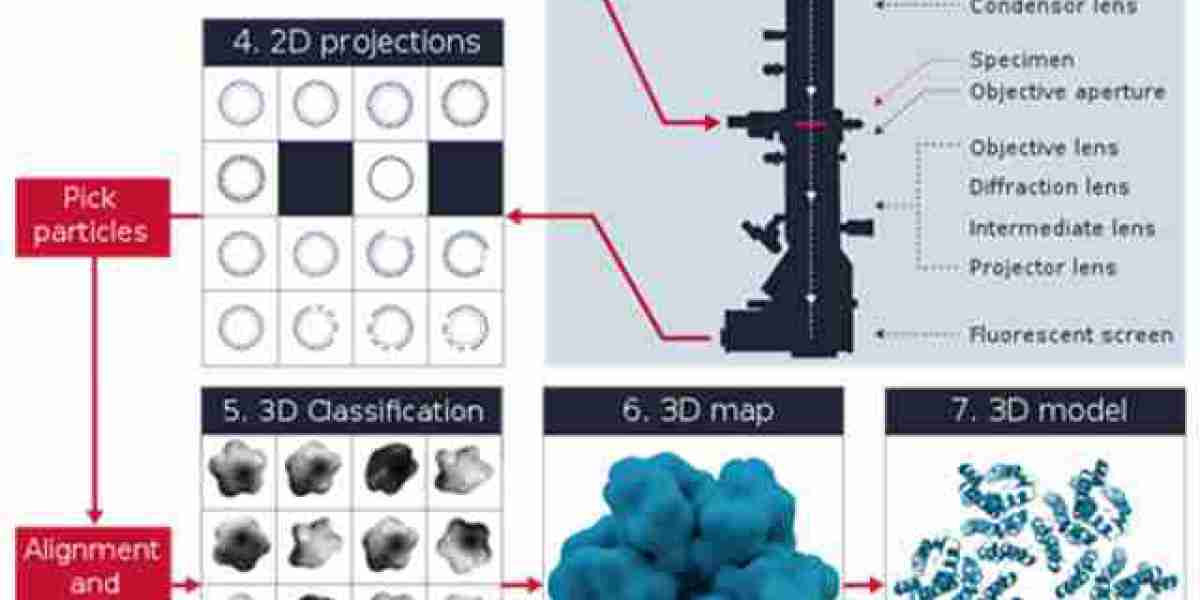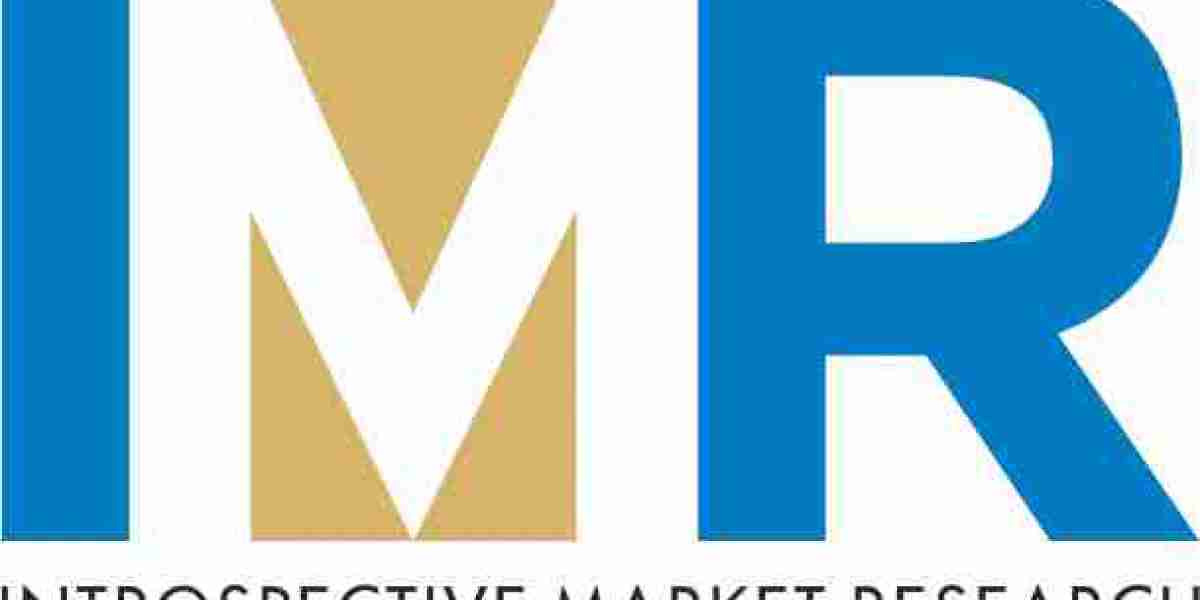Cryo-electron microscopy (cryo-EM) has emerged as a revolutionary technique in structural biology, providing unprecedented insights into the molecular architecture of life. The market for cryo-EM is experiencing significant growth, driven by technological advancements, increased funding, and a growing demand for detailed molecular and cellular imaging.
Market Size and Share
The global Cryo-Electron Microscopy Market is projected to witness substantial growth in the coming years. According to recent market analysis, The global cryo-electron microscopy market in terms of revenue was estimated to be worth $1.1 billion in 2022 and is poised to reach $2.1 billion by 2028, growing at a CAGR of 11.6% from 2022 to 2028. This growth is attributed to the expanding applications of cryo-EM in various fields such as drug discovery, structural biology, and material science.
Prominent players in the market are Thermo Fisher Scientific (US), Danaher (US), JEOL Ltd. (Japan), Intertek Group Plc (UK), Charles River Laboratories (US).
Download the PDF Brochure at https://www.marketsandmarkets.com/pdfdownloadNew.asp?id=217602093
North America holds the largest market share, driven by the presence of major research institutions, substantial funding from government and private sectors, and early adoption of advanced technologies. Europe follows closely, with significant contributions from countries like Germany and the UK, which are known for their strong emphasis on scientific research and development. The Asia-Pacific region is anticipated to exhibit the highest growth rate due to increasing investments in research infrastructure and rising interest in structural biology.
Key Market Drivers
Technological Advancements: Continuous improvements in cryo-EM technology, such as direct electron detectors and advanced image processing software, have significantly enhanced the resolution and efficiency of imaging. These advancements are enabling researchers to visualize biological macromolecules at near-atomic resolution, driving the adoption of cryo-EM.
Increasing Funding: Governments and private organizations are increasingly investing in cryo-EM technology. For instance, initiatives like the NIH’s Transformative High Resolution Cryo-Electron Microscopy program in the US are providing substantial funding to expand cryo-EM facilities and support related research projects.
Expanding Applications: Cryo-EM is finding applications beyond traditional structural biology. It is now being used extensively in drug discovery to understand the structure of target proteins and in material science to study the properties of nanomaterials. This broadening scope is propelling market growth.
Collaborations and Partnerships: Collaborations between academic institutions and industry players are fostering innovation and accelerating the development of new cryo-EM technologies. These partnerships are crucial in translating scientific discoveries into practical applications.
Emerging Trends
Integration with AI and Machine Learning: The integration of artificial intelligence (AI) and machine learning algorithms with cryo-EM is a significant trend. These technologies are enhancing image processing capabilities, enabling faster and more accurate analysis of cryo-EM data.
Single Particle Analysis: Single particle analysis (SPA) is gaining popularity as it allows the study of individual particles in a sample, providing detailed insights into their structure and function. This technique is particularly useful in studying viruses, proteins, and other macromolecular complexes.
Development of Portable Cryo-EM: Efforts are being made to develop more compact and user-friendly cryo-EM systems. Portable cryo-EM units could democratize access to this technology, making it available to smaller research institutions and laboratories.
Expansion into Clinical Diagnostics: There is a growing interest in utilizing cryo-EM for clinical diagnostics. Its ability to provide high-resolution images of pathogens and cellular structures makes it a promising tool for diagnosing diseases at a molecular level.
Direct Purchase at https://www.marketsandmarkets.com/Purchase/purchase_reportNew.asp?id=217602093
Challenges and Future Outlook
Despite its promising growth, the cryo-EM market faces challenges such as the high cost of equipment and the need for specialized expertise to operate and maintain these systems. However, ongoing technological advancements and increasing awareness about the benefits of cryo-EM are expected to mitigate these challenges.
Looking ahead, the cryo-electron microscopy market is poised for remarkable growth. As technology continues to evolve and applications expand, cryo-EM will play an increasingly vital role in scientific research, drug development, and clinical diagnostics. The synergy between technological innovation, increased funding, and collaborative efforts will be key drivers in unlocking the full potential of cryo-EM, making it an indispensable tool in the quest to understand the molecular underpinnings of life.


